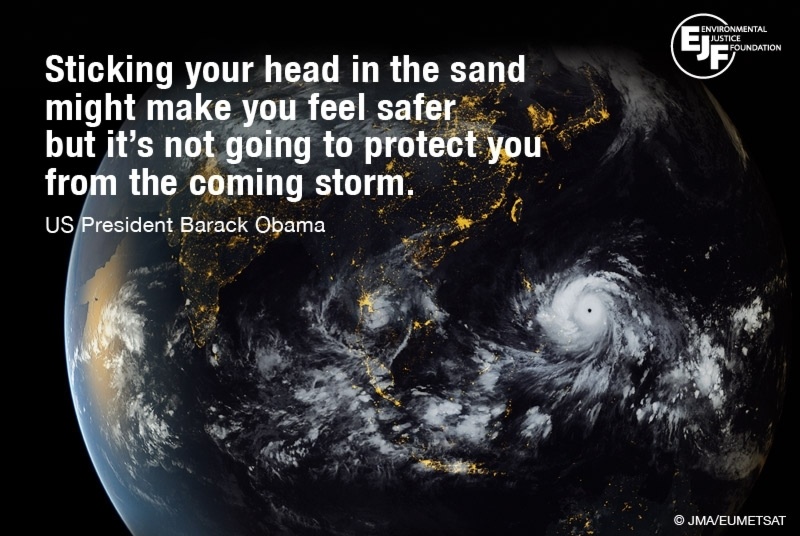
Climate change is an emerging concern on security agendas
In 2012, one person every second was displaced by a climate or weather-related natural disaster. With millions of people forced to move each year by rapid-onset climate-related hazards and slowonset environmental degradation, social wellbeing, human rights, economies and even state stability are at risk. Now the world’s major military powers are analyzing connections between climate change, security and conflict, it is time to act.
Our new report launched today, The Gathering Storm: Climate Change, Security and Conflict, highlights that climate change is acting as a catalyst for conflict and state instability and demonstrates that the world’s major military powers and security institutions are consistently and increasingly considering climate change as a major threat.
Statements by eminent political and military figures indicate that at the highest level, climate change is being assessed as a risk to national security and potentially to global stability. Those voicing concern include US President Barack Obama, UK Ministry of Defence, US Secretary of Defense Chuck Hagel, US Secretary of State John Kerry, former US Secretary of State Hillary Clinton, US National Intelligence Council, Rear Admiral Neil Morisetti, Admiral Joseph Lopez Former Commander-in-Chief US Naval Forces and Vice Admiral Dennis McGinn US Navy.
Featuring a range of case studies including the shrinking of Arctic ice; competition over water resources in Central Asia; sea-level rises and small island developing states; and climate change-induced migration in the Sahel region; The Gathering Storm highlights that while climate change may not be the sole cause of conflict in future, it will increasingly play a prominent role as a ‘threat multiplier’. In combination with patterns of human migration, the challenges of a changing climate may exacerbate tensions over resources, aggravate pre-existing pressures in hotspots where conflicts already exist, amplify the fragility of post-conflict countries and drive both internal and cross-border conflicts.
- Over 70% of countries view climate change as a national security issue. (Source: American Security Project 2013).
- Every 1°C rise in temperature has been estimated to cause a 14% increase of intergroup conflict and a 4% increase of interpersonal violence. (Source: Hsiang 2013).
- 31.7 million people were forced from their homes due to extreme weather events such as flooding and storms in 2012. (Source: Internal Displacement Monitoring Centre 2013).
The costs of ignoring climate change far outweigh the costs of mitigation, which are crucially an investment in a safer and more secure future. EJF is campaigning for the international community to recognise climate change as a human rights issue as well as an environmental issue.
“Climate change is bringing increased violence and instability to the poorest and most vulnerable people in the world. It is already driving people from their homes and will continue to do so in ever greater numbers. Governments and international organisations must break the confines of the current debate and act now to mitigate climate change, create effective strategies for adaptation and apply new protections for those who are already affected and who will be affected in the future.“ Steve Trent, Executive Director of EJF
Our understanding of human-rights and national security needs to take the full range of climate change effects into account. If, as a global community, we cannot give legally defined rights to the biggest group of displaced people on earth, then we will be failing millions of those who need assistance most urgently. Without help, these people will have nowhere to go and, all too often, no means of survival.”
Read the new report here.
SIGN UP FOR OUR EMAILS AND STAY UP TO DATE WITH EJF